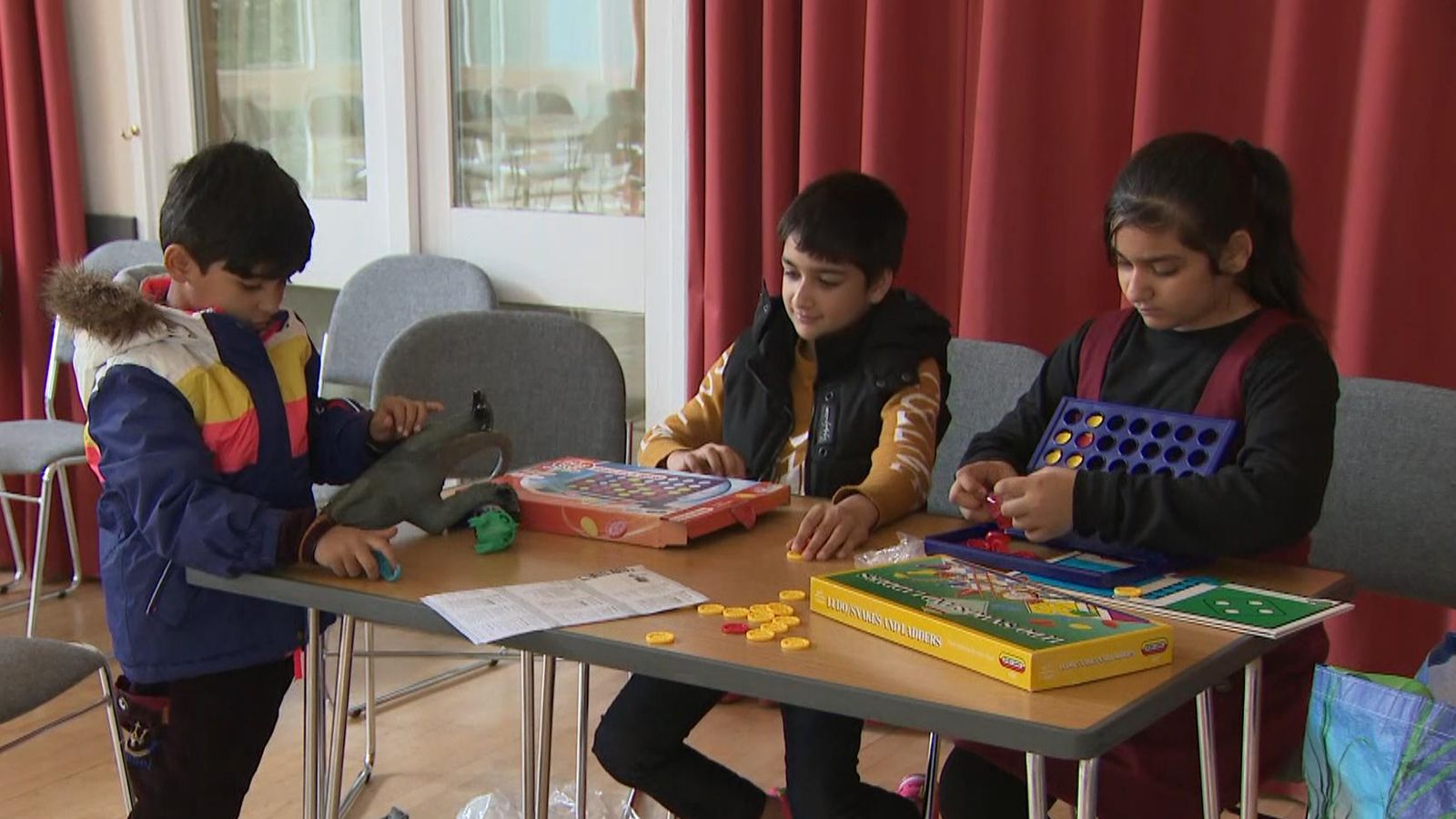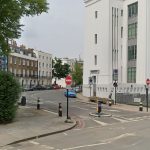Thousands of Afghan refugees – including former interpreters who worked for British troops and children without their parents – are stuck in hotels and hostels in the UK with no date for when they will be moved to permanent homes following their evacuation from Afghanistan.
A number of the new arrivals, while hugely grateful to be safe from the Taliban, said they hoped the limbo would end soon so they could start their new lives.
Speaking more bluntly, British military veterans who have been helping the Afghan refugees urged the Home Office to speed up resettlement efforts or risk failing the brave men and women who had risked their lives to support the UK.
One former officer, Colonel Simon Diggins, also warned there was a danger of radicalisation if people are left waiting for too long and promises of a “warm welcome” are broken.
He said rescuing families from the Taliban was only part of the government’s job.
“We need to get them to a place where they can start to settle, where they can start to not just survive, but thrive,” he told Sky News.
“Let them live their best lives in this country. Let’s show the best of this country to them. We’re not seeing that at the moment.”
Afghanistan: Kabul mosque bomb blast leaves a ‘number of civilians dead’, Taliban say
‘If you can accept us we would be really happy’: Young Afghan footballers plead to be accepted as refugees
Top general admits US credibility damaged after Afghanistan withdrawal
Boris Johnson launched Operation Warm Welcome at the end of August after the UK evacuated more than 15,000 Afghans, British nationals and others from Afghanistan in two weeks following a Taliban takeover.
Adding in earlier rescue flights that began in June, the evacuees included some 7,000 individuals and their families who arrived under a relocation scheme for Afghan interpreters and other staff who had worked for the UK in Afghanistan over the past 20 years.
Please use Chrome browser for a more accessible video player
Everyone had to spend their first 10 days in Britain in a quarantine hotel.
They were then supposed to be moved into temporary “bridging accommodation” until permanent homes could be found.
But a lack of space meant some families were forced to stay in their quarantine hotel beyond the 10 days required by COVID rules – though all are out of quarantine now – while officials even considered Pontins holiday camps as a possible option to house people temporarily.
One man who arrived with his wife and son in July – a month before the main evacuation effort – is still waiting for a permanent home and for a National Insurance number so that he can start looking for a job.
The former interpreter asked to remain anonymous to speak about his situation because he was worried about suffering a backlash from the Home Office as well as wanting to protect his identity from the Taliban.
He said he and his family are sharing a single room in what is normally a house for the homeless in an English town, along with two to three other Afghan families.
They have one shower and one kitchen between all of them.
“It is quite uncomfortable at the moment,” he said.
“It is a small place, but we have to manage until they find a place.”
Asked how long he will have to wait, the man said: “They are not giving a guarantee on how long it will take, but they are giving us hope that they are working on this issue.”
The Home Office said more than 100 councils across the country have agreed to house Afghan refugees.
However, it appears that eight boroughs in London are hosting the highest number of the new arrivals on a temporary basis until they can be found permanent homes.
The leader of the council at Kensington and Chelsea said some 800 Afghan refugees are living in three hotels in her borough – also home to some of London’s wealthiest people.
Many of the Afghan families arrived traumatised and with nothing.
Sky News saw dozens of Afghans hanging out in the lobby, restaurant and meeting rooms of one of the hotels.
Councillor Elizabeth Campbell said around 300 of the new arrivals are children, with up to 20% of them thought to be unaccompanied minors, brought into the UK by adults that were not their parents in the panic and desperation to escape Afghanistan.
“We are trying figure out – are the people who they have come with their aunties or not their aunties? Is it a wider family? Do they want to take responsibility?” she said.
“We then have to marry that with all statutory requirements to see what duties that we do have.”
Council staff are working around the clock to help the families, many of whom do not speak English. A lot of the new arrivals also do not yet have the right documents to be able to receive any benefit payments so are reliant on charitable donations and the council.
Councillor Campbell said she hoped the Home Office would provide permanent accommodation for the refugees before Christmas but added that the council is arranging for primary school-aged children to start attending schools locally while they wait.
“These people … have come out of a war-torn country,” she said.
“To be in a hotel of course it’s lovely, it is asylum for a week or whatever. But you want to move on. You want to be able to put down roots, settle and get on with your life. You can’t do that in a hotel.”
Of the thousands of Afghans who have recently arrived to the UK, it is understood that hundreds have been permanently housed.
A Home Office spokesperson said: “A significant cross-government effort is under way to ensure the thousands of Afghans who were evacuated to the UK receive the support they need to rebuild their lives, find work, pursue education, and integrate into their local communities.
“We have already committed £200 million to meet the cost of the first year of the Afghanistan Citizens’ Resettlement Scheme, which aims to welcome up to 20,000 Afghans.”






















